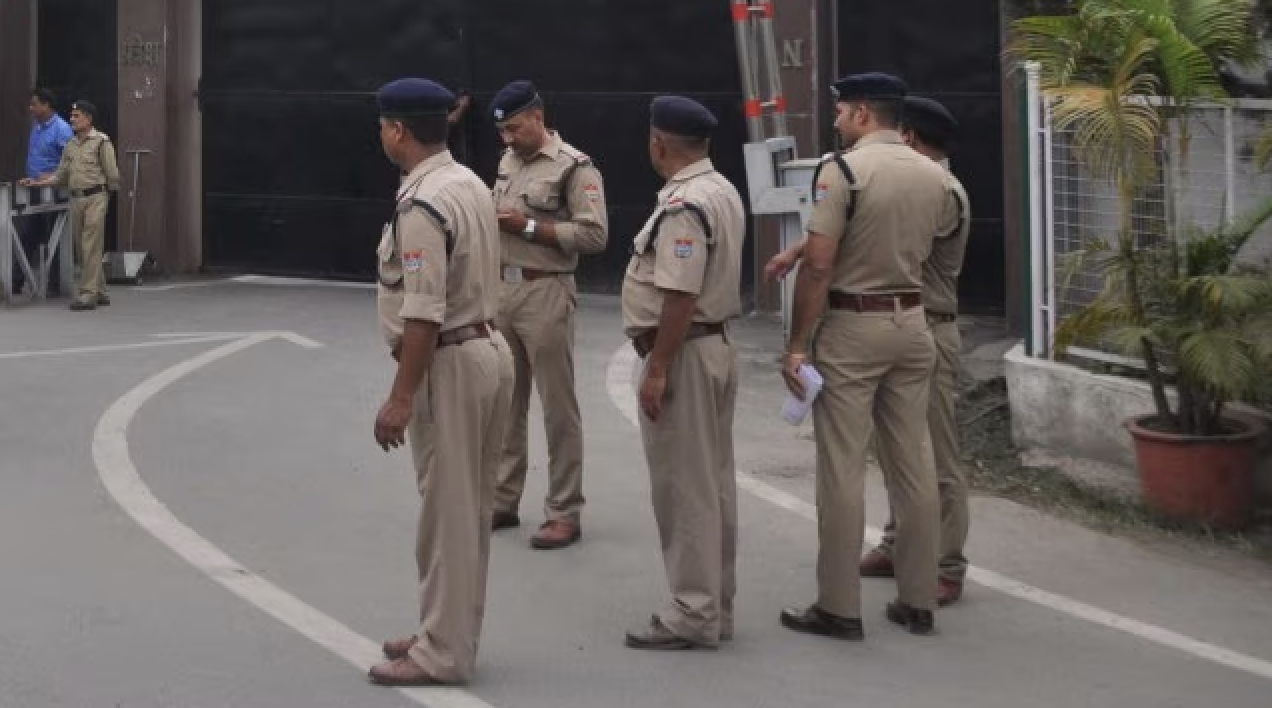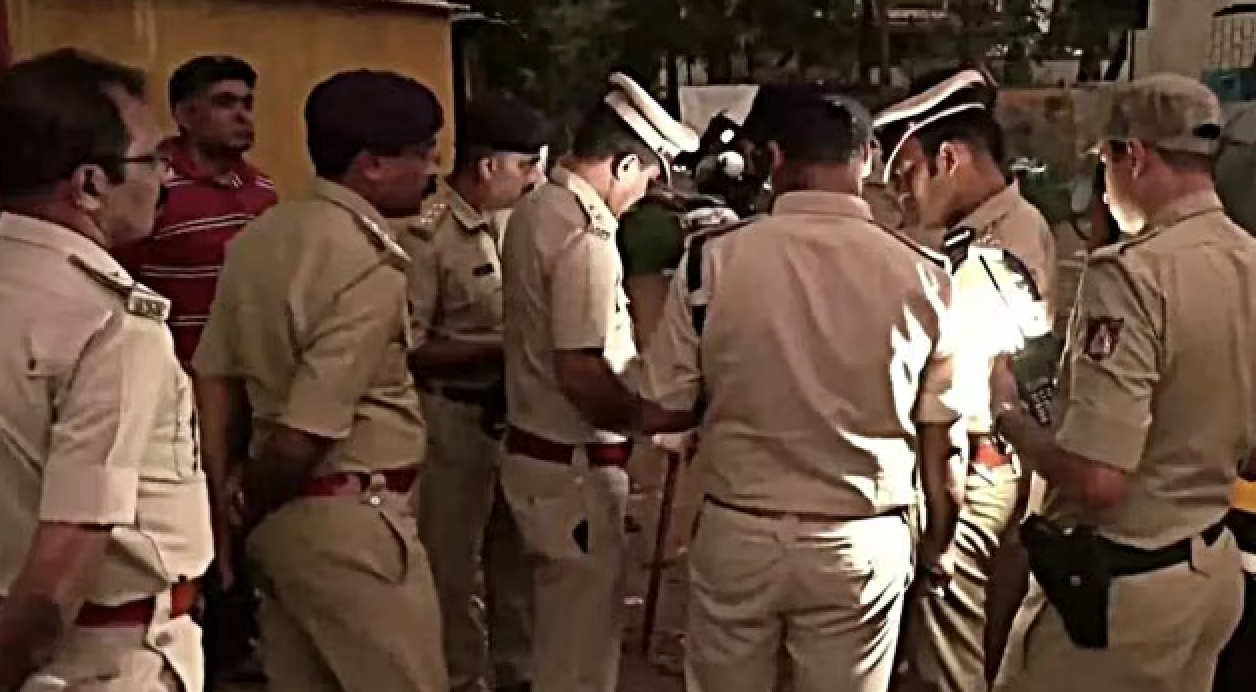
By Ajaz Ashraf
The irrepressible social scientist, Kancha Ilaiah Shepherd (the title he assumed recently), speaks on the ideological hypocrisy of Non-Resident Indians and some of their high priests, including Rajiv Malhotra. Excerpts:
Why are you so stridently critical of Non-resident Indians?
NRIs consist of three distinct groups.
There is one group which works within the multi-cultural framework of societies. Its members are largely fine with Blacks and Hispanics, and also the largely Christian values of the United Sates.
The second group comprises Hindutva NRIs. They migrated to America and Europe for jobs and to provide their children a comfortable lifestyle. But they are acutely uncomfortable with America’s Christian values – also with Black movements and Hispanic cultures. They isolate themselves from the multi-cultural society that has been emerging vigourously over the last two decades or so.
The corollary of this group’s isolation is that it has started importing Hindu culture from India. It involves construction of Hindu temples, facilitating the migration of priests, largely from the Brahmin community, and extolling the Hindutva ideology in their adopted land.
The third group is what you can call “indifferent people” – those who belong to the Scheduled Castes, Scheduled Tribes and Other Backward Classes and poor classes. They are the newly educated. Since they don’t have good jobs here in India, and have managed engineering and medical degrees, they have migrated to America. They don’t much bother about aspects of American culture and are still marginal to its society.
But this third group does show sympathy for certain movements.
At times, they do indeed identify with Blacks, as some Dalit groups definitely do. Muslims are strongly sympathetic with Blacks. This group’s food culture is also akin to America’s.
These three groups have three different ideological positions and have different levels of standing in the society. It is the middle group which has entered into business there in significant numbers.
Isn’t the middle group – the Hindutva group – the most visible and vocal and also the most numerically dominant of them all?
In the recent past, it does seem this group has been expanding. Following the 2014 Lok Sabha election, this group has started to attempt bringing the OBCs into its fold, hold Hindutva camps and conduct seminars.
Does this group operate in America or India?
In America, but they also finance the Hindutva forces here in India. This group undertakes very volatile and vigorously politicising activities.
Isn’t this group the most economically dominant among the three?
The Hindutva group does possess huge resources, evident from the temple infrastructure they have bankrolled, besides financing the RSS-BJP [Rashtriya Swayamsevak Sangh-Bharatiya Janata Party] in India as also supporting their 2014 election campaign.
But this isn’t to say all NRIs holding high-end jobs subscribe to Hindutva. A good many of them are liberals. There is also the other trend – Indians who have successfully entered the public or political life in America did so after converting to Christianity. You have the examples of (former Governor of Louisiana) Bobby Jindal and (governor of South Carolina) Nikki Haley and the US Ambassador to India, Richard Verma.
So all the crowds we see cheering Prime Minister Narendra Modi abroad largely consist of Hindutva followers?
Yes, if you see Twitter, Facebook, et cetera, you see posts extremely critical and abusive of the Left-liberal and progressive forces. These posts are largely from the Hindutva group. It is they who also cheer Modi.
What explains the Hindutva group’s behaviour?
Quite interestingly, these people think they are more Indian even though they live in America.
Is it because they feel culturally alienated in the country they have adopted?
Identity formation is an aspect of it. However, unlike NRIs, the Chinese, for example, emphasise their identity more as Chinese rather than as Buddhists or Daoists (followers of Taoism, now called Daoism). And to think there are more Chinese who are American citizens or green card holders than Indians.
At the time of the national movement, Indians studying abroad or settled there helped frame the composite and secular Indian identity. Is it that the Hindutva group is having a reverse impact now?
In a way, yes. Hindutva NRIs are strongly opposed to the ideological content of Islam and Christianity. Their strong position on Islam places them in the very good company of some Americans who are anti-Islam.
When you say position against Islam and Christianity, don’t you mean position against Islam and Christianity both in India and the US?
Yes, but they don’t talk much against Christianity in America. However, they are very vocal against Islam because that goes well with the general American feeling that there is a clash of civilisations, and that Islam itself is a terror-istic religion. This is why the Hindutva group says Islam can never be democratic and egalitarian. It is in this garb they promote Hindu institutions as peace-loving and non-confrontationalist.
What Americans don’t realise is that the Hindutva groups have increased caste and culture differences in Europe and America in the Indian Diaspora. The caste differences have reached to such an extent that Britain had to recently pass a law against caste discrimination. Caste-ism goes against the very grain of American and European societies.
What kind of role is the Hindu American Foundation playing in all this?
As far as my understanding goes, this organisation has a very large network. It has been publishing books and conducting seminars. Then you have Infinity Foundation’s Rajiv Malhotra who co-authored Breaking India. The book says Dalits are planning to break India, as are Muslims, Christians, and the Left.
What is the support base of these activists and foundations? Obviously, it is Brahmanism and fundamentalist Hindus, not liberal Hindus.
Have you ever met or corresponded with Rajiv Malhotra?
No, no, no – but he has written a lot about me in his book.
What does he say?
Malhotra says I am one of the foremost ideologue among those who promote Christianity, Islamism, et cetera – the four groups which want to break India. But they also say contradictory things – they accuse me of promoting both George W Bush and Osama bin Laden. (Laughs)
What exactly has Malhotra said against you in Breaking India?
There is a section there (under the title), The Role of Kancha Ilaiah. On Twitter and Facebook, too, Hindutva activists wrote on my ideological role. Malhotra’s book mentions me as the person who is helping the four groups divide India.
The question is: Why are they not in India? I stay in this land of ours among the poor and the struggling masses, through the thick of things. Yet it is they who say I am anti-national.
Are you saying why do Rajiv Malhotra and his ilk stay in very comfortable conditions abroad, from where they choose to wage their ideological battles?
Malhotra, Subramanian Swamy, and of late, even Lord Meghnad Desai, who too has started promoting Hindutva abroad and was opposed to the British criminalising caste-ism. These are the people who comfortably live in other countries, away from the heat and dust of India.
We suffer psychologically, for instance, when communal riots take place or Dalits are killed. When Maoists kill landlords, the upper castes feel the heat. Malhotra and Desai can never experience that, given that they live abroad.
But Subramanian Swamy lives in India. He’s an Indian citizen.
Yes, but only recently did he begin to continuously live in India. [Note: Swamy has lived in India since at least 1969.]
Are you saying they are duplicitous?
Malhotra, Swamy and Desai represent anti-Indian ideology. Not only do they not want India to become egalitarian and multi-cultural, they choose to live or stay for long periods in countries where people eat beef, pork, just about everything. But they attack us for celebrating beef festival. They assume beef is only cow-meat. Don’t they know that beef does not necessarily have to be cow-meat?
You feel Malhotra is hypocritical.
Rajiv Malhotra is anti-national and anti-Indian. Those who claim to be nationalists should live in India. We can then debate on how to build India. I may have differences with Narendra Modi, but he lives in this country. I have differences with Ram Madhav, who comes from Andhra Pradesh, but he is living where an ideological battle is taking place. But these NRIs preach to us and behave as supra-nationalists.
Do you think Donald Trump is an antidote to NRIs?
When a nation is successfully pushed into rightwing nationalism, the idea tends to go to another place. For long, there has been a jingoistic Hindutva campaign. It succeeded in 2014. But Modi had been more cautious than Trump. Modi went on and on about development. Had he spoken like Trump, Modi wouldn’t have got the majority of 2014.
Trump, however, has decided to go all out and construct the idea of America First for Americans. This is why I say India First has impacted on America. (Laughs) I am sure rightwing NRIs have links with Trump’s campaign team. They must have told Trump that he should speak about America First, and build a wall around America. (Laughs again)
Look at the disastrous consequences that Trump’s policy would have not only on America and the world, but also on NRIs. I am worried about the impact Trump’s policy could have on the liberals, Dalits and OBCs.
It will impact the Hindutva NRIs as well.
When communalism and jingoism establishes a way, whether it is Hindu or Muslim communalism – I am not saying Islamic – you don’t see its self-destructive impact beforehand. Hindutva NRIs believe America First is directed against Muslims and Hispanics. They don’t realise it will also gobble them up.
After globalization, no nation can live in isolation. You can’t stop people migrating from one country to another. But when people like Malhotra are there, or when people like Swamy talk the way they do, then not only nations but also communities and cultures get destroyed. Globalization must be addressed in terms of social and spiritual equality.
Given the charges levelled against you by Malhotra, do you intend to file a defamation suit against him?
No, I don’t wish to imitate the Hindutva forces which go about demanding bans and harassing writers and academicians. These things don’t transform anybody, never will. I’d rather fight the battle ideologically, politically and socially.
This story first appeared on scroll.in






